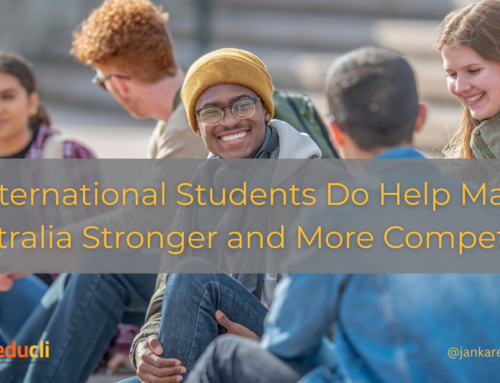Is regulation of agents needed?
After two years of flat-lining numbers during the pandemic, international students are pouring back into Australia, fueling an overseas education industry worth about $40 billion annually, trailing only iron ore, coal, and natural gas as exports. The Bureau of Statistics said last week that almost 143,000 international students arrived in Australia in February 2023.
An inquiry into international education voiced concerns that agents who facilitate the entry of overseas tertiary students were reaping massive profits without ever having to reveal how much they were being paid by universities and colleges.
The hearing came after The Age revealed that at least five Australian universities had banned or restricted students from specific Indian states in response to a surge of applications from South Asia and an accompanying rise in what Home Affairs described as fraudulent applications.
“The students are literally cash cows,” student advocate Bijay Sapkota, a former president of the Council of International Students Australia, said ahead of the first hearing in Melbourne of the federal parliamentary inquiry into international education. Sapkota, an international student who now advocates for those coming to Australia to study, agreed that education agents needed more regulation.
Home Affairs Minister Clare O’Neil told ABC Radio that Australia’s international education system was “one of the biggest assets that we have in our migration system” because it brought young people from around the world to Australia for training. “It is also one of the main avenues through which exploitation occurs. So, we have to balance these two things,” O’Neil said.
Victorian Labor MP Julian Hill, a member of the education inquiry, said that there needed to be strong consideration of regulating education agents who worked in Australia. “The increasingly rapacious behaviour of [education] agents” meant there was growing public pressure to introduce new laws surrounding what education agents could do, he said.
Hill questioned university representatives about why they did not make public how much of an international student’s tuition fee was paid to the education agents who helped recruit them. G16 founder Nicholas Read said that much stronger regulation of the international education sector was needed.
As per Phil Honeywood, CEO of International Education Association of Australia (IEAA), education agents should be regulated, similar to migration agents. The Department of Home Affairs in the 2022 financial year heard 132 complaints against migration agents, with 74 found to have breached a code of conduct and 11 sanctioned. This isn’t possible for education agents under current laws.
Source: https://www.theage.com.au/





Leave A Comment